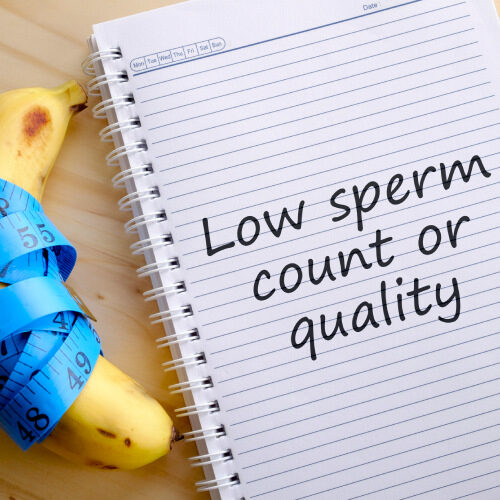Natural Infertility Treatment In San Diego

We are seeing an increase in couples struggling to conceive and resorting to intrusive and costly treatments such as IVF, which may not always be successful. In some cases, infertility or the need for IVF is unavoidable, but fertility levels can often be improved naturally, as well as the chances of success with IVF when necessary. Let’s look at why infertility is on the rise, what conventional methods are currently being used, and how our naturopathic approach can help.

Estrogen
Estrogen is the primary female hormone. The ovaries, adrenal glands and fat cells all produce smaller amounts of estrogen, and during pregnancy the placenta contributes to this production as well.
Estrogen is a key hormone that contributes to a woman’s reproductive and sexual development, from puberty to menstruation and pregnancy up until menopause.
Estrogen plays a supporting role in many parts of a woman’s body including:
- Brain- increases acetylcholine (brain chemical crucial for memory)
- Mood – involved in the production of the feel good neurotransmitter serotonin
- Cardiovascular system – helps to maintain cholesterol levels
- Hair – supports healthy hair
- Bones – impacts how your body uses calcium
- Skin – helps in prevention of aging skin
- Urinary tract – keeps the vaginal tract healthy
Common factors contributing to infertility can include:

- Hormone imbalance
- Chronic stress
- Tubal disorders i.e. blocked fallopian tubes
- Uterine disorders i.e. fibroids, endometriosis
- PCOS and other ovarian disorders
- Pituitary disorders i.e. pituitary cancer, pituitary adenoma
- Seminal vesicle or ejaculatory duct blockage
- Testicular disorder i.e. trauma, testicular cancer
- Exposure to endocrine disrupting chemicals (EDCs) or toxins
- Varicocele (enlarged veins in the scrotum)
- Chemotherapy
- Anabolic steroid use
- Smoking
- Excessive alcohol intake
- Excessive exercise
- Hypothyroidism or Hashimoto’s
- Underweight or obesity
- Infections i.e. mumps, chlamydia, gonorrhea,
- HIV
- Frequent exposure to hot temperatures i.e. sauna or hot tub (these can temporarily contribute to male infertility)
- Certain medications
- Substance abuse
- Cystic Fibrosis
- Autoimmune conditions
- Genetic Conditions
- Improper timing
- Unknown factors

Testing for fertility
To determine the root cause of infertility, a variety of tests can be conducted. These may include imaging scans to detect anatomical/structural issues, blood tests to measure hormone levels, semen analyses and ovarian reserve assessments to evaluate an individual’s reproductive potential.
Testing for infertility can include:
- Semen analysis
- Hormone testing i.e. progesterone, estrogen, testosterone,LH, FSH
- Prolactin
- AMH (anti-mullerian hormone)
- Genetic testing
- Certain imaging i.e. cystic fibrosis
- Ovulation testing
- Ovarian reserve testing
- Hysterosalpingography
Conventional approach for infertility
Conventional infertility treatment typically starts with the least intrusive form of ovulation induction, usually clomiphene citrate in combination with IUI.
If this doesn’t result in pregnancy, treatment can then move on to IVF.
- Clomiphene citrate
- Gonadotropins
- IUI (intrauterine insemination)
- IVF (in vitro fertilization)
- ICSI (intracytoplasmic sperm injection)
- Donor oocytes
- Donor embryos

Naturopathic approach to treating infertility
As naturopathic doctors, we take a holistic approach when it comes to treating infertility.
This means considering all aspects of the individual’s life, such as their nutrition and sleep habits, environmental exposure to toxins, stress levels, and any pre-existing medical conditions – all of which can have an effect on reproductive health.

Listed below are some of the factors we look at when it comes to fertility treatment:
- Toxin Exposure – Chemicals that disrupt the endocrine system, such as BPA found in plastics, phthalates in beauty and personal care products, and pesticides used in conventional farming, can lead to decreased fertility and diminished sperm counts.
- Organic Diet – Eating organic fruits and vegetables can have a beneficial effect on overall health, as well as promote fertility. One study found that people who ate an organic diet had a 43% higher sperm concentration than those who ate a conventional diet.
If organic food is too expensive, the Environmental Working Group (EWG) has created a list of “Clean 15” and “Dirty Dozen” foods. The Dirty Dozen have higher levels of pesticides and should be bought organic if possible. The Clean 15, however, contain lower levels of pesticides and are safe to consume in non-organic form.- Dirty Dozen: https://www.ewg.org/foodnews/dirty-dozen.php
- Clean 15: https://www.ewg.org/foodnews/clean-fifteen.php
- Stress Reduction – Prolonged stress and elevated levels of cortisol can be detrimental to overall health, particularly the hormonal and reproductive systems. A study revealed that women under 40 who partook in a mind-body intervention program increased their IVF pregnancy rates from 43% to 52%. Additionally, “Letting go” counseling was associated with a 1.9x improved fertility rate for those undergoing IVF treatment. Prolonged stress affects the adrenal glands, which are responsible for producing cortisol in the body. If allowed to persist, this can have disastrous consequences on overall wellbeing. For more about stress reduction and the impact on our adrenal glands.
- Optimal Weight – Being overweight is an inflammatory process that can lead to a disruption in hormonal balance and signaling. This includes hormones such as testosterone, estrogen, progesterone, LH, and FSH which are essential for normal fertility. To combat this issue, one should strive to eat organic whole foods while avoiding processed foods and simple sugars. Additionally, following a steady exercise routine will also help to reach optimal weight.
- Omega 3 Fish Oil – Supplementing omega 3 fish oil or consuming wild caught cold water fish regularly can help to reduce inflammation in the body, and thus improve fertility. Limiting the intake of pro-inflammatory omega 6 oils is also important. Studies have shown that fertile men generally have higher levels of omega-3s in both their blood and sperm, as well as a better balance between omega 6:3 ratios than infertile patients.
- Mitochondrial Support – Nutrients that support mitochondrial function may be beneficial for fertility. According to one study, taking a supplement of L-carnitine was associated with higher sperm motility, morphology, and pregnancy rates compared to a placebo group. CoQ10, another mitochondrial-supporting supplement, also yielded similar improvements in sperm quality including improved motility and concentration when compared to the placebo group.
